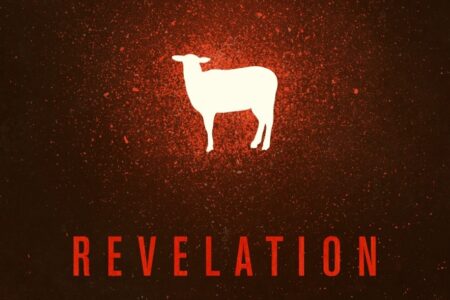Sermons from 2020 (Page 6)
“The Great White Throne Judgment” (Revelation 20:7-15)
Great White Throne Judgment Great White Throne Judgment Brad Mills / General Revelation / Eschatology: Last Judgment / Revelation 20:7–15 Think of a time in your life where you greatly offended your parents and received some form of discipline. I realize the spectrum of responses may span from one of neglect and indifference to (unfortunately) even physical abuse. For some of you, the punishment might have been so harsh it overshadowed the offense so that you can’t even remember…
“The Thousand Years” (Revelation 20:1-6)
The Thousand Years The Thousand Years Brad Mills / General Revelation / Millennium / Revelation 20:1–6 In Adolph Hitler’s first speech as the German Fuhrer, he assured the nation that Nazi Germany would last a thousand years. He believed that Germany needed to return to its roots in the Holy Roman Empire which inspired visions of “agriculture virtue, simplicity, community, and social harmony.” In other words, it was an inspiring and idealistic view of the future. Hitler often riled…
“The Great Supper of God” (Revelation 19:11-21)
The Great Supper of God The Great Supper of God Brad Mills / General Revelation / Second Coming; Christ as King / Revelation 19:11–21 Christians were already enduring various levels of persecution. A few had been martyred for their faith. Others were experiencing social and economic hardship, as detailed in several of the letters sent to the seven churches in Asia Minor (Re 2-3). Much of John’s vision warns believers to expect that persecution to increase. They were about…
“The Marriage of the Lamb” (Revelation 19:1-10)
The Marriage of the Lamb The Marriage of the Lamb Brad Mills / General Revelation / Joy; Heaven; Marriage of the Lamb / Revelation 19:1–10 Revelation contains many contrasting themes. Darkness is followed by scenes of bright light. The torments of persecution on earth are followed by the glories of saints in heaven. In this case we jump from the theme of the world lamenting at Babylon’s funeral to the saints rejoicing at the wedding celebration of the Lamb.…
“A Lament for Babylon” (Revelation 18)
A Lament for Babylon A Lament for Babylon Brad Mills / General Revelation / Judgment; Idolatry; Harlot / Revelation 18:1–24 Babylon and the beast represent the assault of Satan upon the Church through the seduction of our lustful desires and indulgence of our misplaced fears. Those threats are not finally removed until they are destroyed by Christ at his Second Coming. That can only be seen from a heavenly vantage point. The believer is filled with hope recognizing that…
“The Harlot and the Beast” (Revelation 17)
The Harlot and the Beast The Harlot and the Beast Brad Mills / General Revelation The best classic novels represent excellent writing and story telling, but those with the greatest impact typically illustrate some moral purpose. One of my favorite novels portraying the devastating consequences of immorality is Leo Tolstoy’s Anna Karenina. The story follows the lives of two main characters. Anna, a disenchanted housewife, has an extra-marital affair with another member of the upper-class. Konstantin Levin, a down-to-earth…
“The Seven Bowls of God’s Wrath” (Revelation 16)
The Seven Bowls of God’s Wrath The Seven Bowls of God’s Wrath Brad Mills / General Revelation / Wrath of God / Revelation 16:1–11 Although judgment is a dirty word in our culture, it is biblical. The holiness of God demands his wrath. Liberal pastors minimize God’s wrath in order to be accepted by the culture. But this comes at a great cost to the truth and sufficiency of Scripture. Arguing against this tendency, Richard Niebuhr described the liberal…
“The Sea of Glass” (Revelation 15)
The Sea of Glass The Sea of Glass Brad Mills / General Revelation / Heaven; Worship; Wrath of God / Revelation 15:1–8 Let me begin by reminding you of some of the fundamental principles we have been following in order to better comprehend this challenging book. Given the nature of the apocalyptic genre, our default hermeneutic (how we interpret any given passage) should be to expect symbolism and metaphor. We see it throughout the book. That doesn’t make the…


